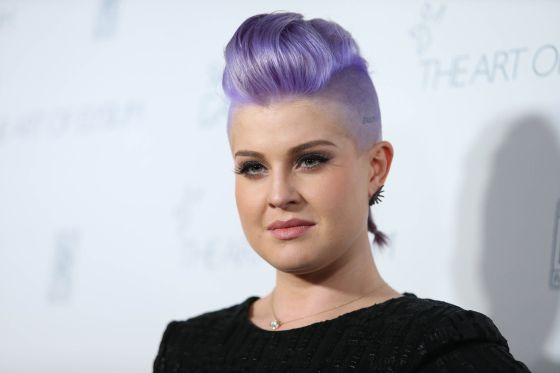
Kelly Osbourne Celebrates One Year of Sobriety After Relapse
Television personality and former The Osbournes reality star Kelly Osbourne has come forward to reveal she recently suffered a relapse. Kelly, who has publicly struggled with drug and alcohol addiction since her teen years, was upfront with her followers in an Instagram post, admitting that she had experienced a dark period in her sobriety.
“This past year has been one of the hardest years of my life and I feel it’s time [I] share that with you guys,” she wrote in the heartfelt post, sharing her message alongside a screenshot from her Twelve Steps Companion app, which documented one year of sobriety.
Kelly divulged that she was first exposed to prescription narcotics at the tender age of 13 following a tonsillectomy. Experimenting with different pills during her teen years, her addiction worsened in light of her mother Sharon’s cancer diagnosis, before finally entering rehab at age 19.
Kelly went to rehab twice more over the next several years.
Writing in her 2009 memoir, Fierce,Kelly said of her addiction, “Soon I was taking 50 pills a day. Most people would overdose on ten.”
Addiction in the Osbourne Family
The Osbourne family patriarch, Ozzy, led heavy metal band Black Sabbath. The band formed in 1968 and played together until their final concert in 2017.
Ozzy Osbourne readily admitted to abusing drugs and alcohol for decades. In his memoir, I Am Ozzy, he described the extent of his intense drug abuse, which included everything from heroin to cocaine to cough syrup and prescription drugs. He stated that the combinations of drugs he took were “lethal.”
In a 2017 interview with Rolling Stone, Ozzy revealed that he was maintaining his sobriety, stating in part that, “I want to be around for everyone.”
In addition to Ozzy’s daughter Kelly, son Jack also faced his own battle with addiction. After going through rehab in 2003 for OxyContin in 2003, Jack has been in recovery ever since.
With several addictions in the same family, it is important to recognize that while some children may inherit a genetic predisposition to having an addictive personality, others will not. The University of Utah, who performed leading genetic studies on the topic, notes that “susceptibility does not mean inevitability.”
The University further explains that the complexity of addiction makes finding a gene directly connected to addiction a “tricky process.”
According to the National Institute on Drug Abuse (NIDA), genes account for between 40 and 60 percent of a person’s predisposition for addiction. While the genetic link is not traceable to any one specific gene, it has also been proven that those with mental disorders are also at a higher risk for addiction.
NIDA notes that other factors which may be more environmental, such as exposure to drug and alcohol use in childhood, can contribute to a young person’s drug abuse or addiction. Drugs can affect the developing brain when used as a teen or child.
Facing Relapse in Sobriety
Despite facing a setback in her recovery, Kelly Osbourne has emerged with a keen self-awareness. In her post, she concluded, “[…] The only way I knew how to function was to self-medicate and go from project to project so I never had to focus on what was really going on with me. Something had to give… and it did.”
One year of sobriety is a huge accomplishment for Kelly, who is now 33 years old. The complex nature of addiction and its many factors, whether genetic or otherwise, must be taken into account when creating a treatment plan. A relapse is often a sign that a new approach to treatment for the individual is needed.
Stories like the Osbournes’ remind us that it is never too late to get help, and that facing a relapse should not be looked upon with shame, but instead with a renewed sense of hope.